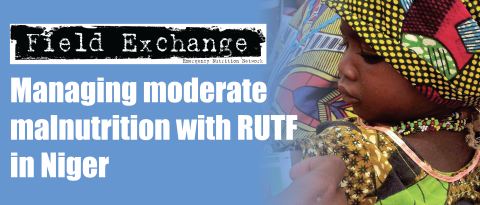Caring for premature babies in a conflict zone
Summary of published experiences1
This paper describes aspects of the authors work as a midwife with Médecins Sans Frontieres (MSF) in a north-western regional hospital in Côte d'Ivoire during the civil war (2004-2005).
In Cote d'Ivoire, skilled birth attendants assisted with 62.5% of births (2000). The Infant Mortality Rate was 118/1000 of live births and the child mortality rate for children under 5 years was 162/1000 for girls and 225/100 for boys. In this resource poor context, breastfeeding is a matter of life or death.
MSF provided primary health care at a rural hospital in Danané and from daily mobile clinics. Most of the population lived in small villages scattered throughout the bush. Almost half of the pregnant women seen in the clinics tested positive for malaria and many others suffered concurrent opportunistic infections including STDs (sexually transmitted diseases) and were often chronically anaemic. Many first time mothers were in their early teens. Of the 160 or more births per month at the hospital, at least six or more per month who survived their birth were significantly premature - weighing less than 1500 grams, with a number around 1000 grams or less that were mostly girls.
In four case studies, the author describes aspects of the care including initiating a feeding regimen for premature babies, the use of kangaroo care to aid thermoregulation, initial stabilisation of premature infants including feeding methods maintaining oxygenation, and feeding multiple infants.
Most premature babies who survived the birth were around 29-33 weeks gestation. After birth, most babies had an intravenous line inserted for antibiotics and for parenteral hydration when they were not tolerating oral nutrition. Following initial stabilisation, the aim of management was to avoid/treat initial hypoglycaemia, maintain hydration, minimize weight loss and ensure weight gain. Thermoregulation was greatly improved by the introduction of Kangaroo care - skin to skin contact can raise a baby's temperature by 1 degrees C in 1 hour. Both staff and mothers needed reassurance that this technique would do no harm. Also, newborns tended to be wrapped loosely rather than swaddled which may suit a robust full term infant in a tropical climate, but not a premature baby.
Feeding premature infants

An infant receives colostrum (the first breastmilk produced on birth) via a nasogastric tube
If they survived the first 4-5 days, most premature babies were able to breastfeed early (contrary to the author's midwifery teaching). Many were partially breastfed at 1100-1200g, and by 1400-1500g were fully breastfed. A number of techniques were used to support the mother in establishing breastfeeding, including nasogastric feeding of expressed breastmilk when initiating feeding, and breast compression during a breastfeed (where a mother squeezed and held her breast, pushing a bolus of milk that dripped into the baby's mouth). Expressing breastmilk was not a normal activity for women but with support this was mastered. Expressed breastmilk was also given by cup or finger feeding (the latter where a mother inserted her clean little finger in the baby's mouth, touching the palate to stimulate the sucking reflex. Staff then gave breastmilk slowly via a syringe inserted alongside the finger - see picture below).
Where there was insufficient expressed breastmilk (there were no facilities for storage or milk banks), then 10% dextrose was given orally. Infant formula was rarely used as it was unsafe and unsustainable in this context and would remove the impetus to establish breastfeeding. Staff also felt it would have given the wrong message if formula was supplied by an international NGO, suggesting that it was acceptable and even preferable to mother's milk. The cost of a can of infant formula in the town pharmacy was more than a day's wages and there were inadequate facilities to support its safe preparation.
The average hospital stay for premature babies was approximately three weeks and most went home weighing around 1700 - 1800 grams. Many of the mothers of these premature babies had small children back in their village and had to balance the needs of other family members with the new baby.

A mother 'finger feeds' her premature baby
In this setting, the author describes how "infant formula is a death sentence" and if efforts to increase supply were not successful, a message would be sent to the family to find someone else to donate breastmilk or arrange a wet-nurse. Sometimes this was easy, at other times, very difficult. A number of grandmothers were breastfeeding their orphaned grandchild. In one instance, a woman arrived who had four infants under her care all under six months of age (she had taken in her sister's 3 month old triplets, when her sister died). In this instance, the clinic fully supplied infant formula, the infants were monitored monthly at the clinic and did well.
The author concludes with a heart-felt tribute to the dedication of the national staff in supporting these infants, particularly in a setting where there is virtually no technology and survival depends on close monitoring, commitment, innovative thinking and lots of dedicated care.
1Harris, H (2007). A little help from my friends: caring for premature babies in a war zone. International Breastfeeding Journal 2007, 2:3 doi:10.1186/1746-4358-2-3. The full version of this article can be found online at: http://www.internationalbreastfeedingjournal.com/content/2/1/3
Imported from FEX website


